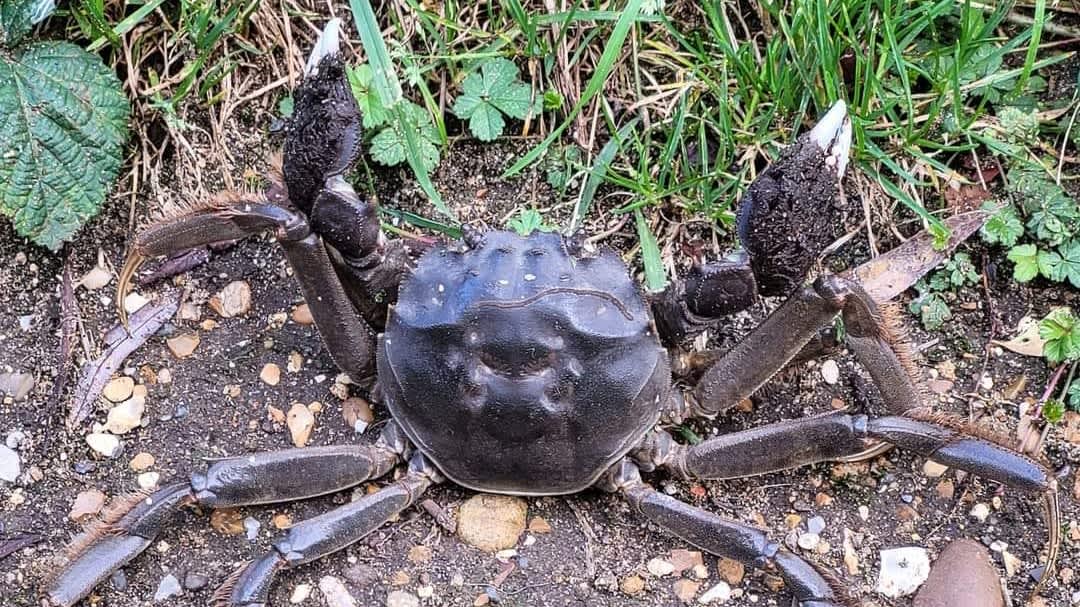Prawns contain around 120mg per 100g; beef brain contains around 1000mg (i.e. 1g) per 100g - ten times as much!
Not healthy at all if eaten frequently.
Not healthy at all if eaten frequently.
There's a reason that humanity's numbers increased, as did life expectancy and child survival, when farming became popular
And obesity and the modern health decline shot upThere's a reason that humanity's numbers increased, as did life expectancy and child survival, when farming became popular
Yes I agree on the liminal zones.I think that with a capable population of people who knew the seasonal round, who knew what when and where food could be found, and were able to stash and store as well as constantly provide food, and it's a small population comparatively speaking....then it's just a matter of accessing it.
Good pristine, easily worked riverine soils are wonderful for early farming. Thing is though that that work continues right through the millenia and slowly removes earlier evidences except in chance situations, or if we perhaps have writings such as the Fertile Crescent, Egypt, China, etc.,
The great pity is that those brilliant farming lands end up the centres of cities and industrialisation swamps them.
Anyway, off track a bit. I think the best foraging lands are the liminal zones, the bits along the estuaries where fresh and salt are both within reasonable walking/hunting/foraging distance.
Vegetarians still eat animal products unlike vegans animal products like cheese are high in minerals.My sons are vegetarian, and neither has a single missing tooth or filling.
That arguement has long been disproven. Whole cultures are vegetarian.
Yes I agree seafood is optimal foodPrawns contain around 120mg per 100g; beef brain contains around 1000mg (i.e. 1g) per 100g - ten times as much!
Not healthy at all if eaten frequently.
With farming obesity also went thru the sky.Is that actually true? I was informed that early farming resulted in a reduced diet variety that led to lower life expectancy and child survival. I suppose it depends how you define 'when farming became popular'.
Farming also caused us to put up barriers, create 'ownership', and introduced a higher level of competition for land and materials than before - it's only recently we've had wars over such things as oil.
They do, but I can't. I don't digest dairy well, so even though I'm vegetarian, it's really honey that keeps me in that camp.Vegetarians still eat animal products unlike vegans animal products like cheese are high in minerals.
That's dubious to be honest.With farming obesity also went thru the sky.
Some shellfish require diving but you are rightJapanese macaques fish. They even do it in fast flowing streams.
You know the phrase, "monkey see, monkey do".....well that's us. Humanity sees something like bird diving for fish and decides that they can do it too.
It doesn't mean we're adapted to dive for fish, it simply means it's another skill in the toolbox of humanity.
......and no, shell middens weren't produced by diving, not here, they're simply collected from the foreshore.
Oysters were once so prolific that they were the food of the poor. Indeed the apprentices in London went on strike and one of their demands was no oysters or salmon more than once a week.
Besides, some of us can't eat fish, we're allergic. Surprising numbers of people are allergic to fish and shellfish, and entire cultures refuse to eat shellfish anyway.
Honey is a animal product to full off digestive enzymes from bees it's very good esp iff raw there's no primitive culture I'm aware off that's vegan I'm glad your healthy though.They do, but I can't. I don't digest dairy well, so even though I'm vegetarian, it's really honey that keeps me in that camp.
My diet is rich in minerals, I am becoming an old lady yet my bone density is very good, no signs at all of osteoporosis and I have been vegetarian since I stopped feeding my sons myself.
This is not uncommon, I wasn't joking about world wide cultures that thrive on a vegetarian or vegan diet. Southern Indians for instance.

Indians still eat animal products cows are sacred to them ghee milk ectI think the numbers of people who are might surprise folks.
In India alone, "Plant-based eating is deeply rooted in three of the prominent religions practiced in India – Hinduism, Jainism and Buddhism. All these religions believe in the concept of Ahimsa, which means kindness and non-violence towards all living things."
It is also claimed that, "The Brokpa tribe of Ladakh, for example, has thrived while eating a plant-based diet for more than 5,000 years—all while living in harsh Himalayan terrain."
While, "Ethiopian Orthodox Christians also eat vegan food for several weeks before major festivals, including Easter and Christmas. This means that they are vegan for around 208 days out of 365."
If you farm, then vegan is very do-able.
Indians still eat animal products cows are sacred to them ghee milk ect
